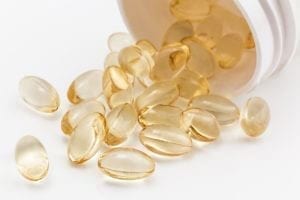Pemphigus
What is pemphigus?
Pemphigus is a disease that is characterized by blisters and sores on the skin and mucous membranes. Those who are middle-aged and older are at the highest risk of having this disease. It is a chronic condition, but it is typically controlled by medication.
What are the symptoms of pemphigus?
Blisters on the skin and mucous membrane are the main symptom of this condition. These blisters may burst, which can lead to oozing and infection. There are two types of pemphigus: vulgaris and foliaceus.
Pemphigus vulgaris usually begins with blisters in the mouth, which can make eating and swallowing difficult. They then spread to the skin genital mucous membranes. These blisters are painful but do not itch.
Pemphigus foliaceus causes blisters on the back, chest, and shoulders, which are often more itchy than they are painful. No blisters in the mouth occur in this type.
Complications may arise from this disease. Infections often occur due to open blisters, and they have the potential to spread to the bloodstream. Malnutrition is another possibility if sores in the mouth make it too painful to eat. Medications for this condition can also have side effects. In very severe cases of certain types of pemphigus, death can occur.
What causes pemphigus?
Pemphigus is an autoimmune disorder; the immune system makes antibodies that damage the mucous membranes and skin. The trigger of this immune system malfunction is usually unknown, but in rare cases it is caused by angiotensin-converting enzyme inhibitors, penicillamine and other drugs.
There are risk factors for this disease. Being middle-aged or older heightens the chance of developing this condition. Those of Middle Eastern or Jewish descent are also at a higher likelihood.
How is pemphigus diagnosed?
A diagnosis may be difficult to attain, as many conditions can cause blisters. An examination of the skin and mouth, along with an evaluation of medical history will be conducted. Other possible tests include skin biopsies, blood tests, and endoscopies.
What are the treatments for pemphigus?
A dermatologist is recommended for treatment of this disease, which usually begins with medications that are meant to suppress the blisters from forming. Early treatment is typically the most effective. Possible medications that can be prescribed are corticosteroids, steroid-sparing immunosuppressant drugs, and other medications if the first two are ineffective. Treatment is usually effective, but it may take years.
Where can I find out more about pemphigus?
Pemphigus Articles


International Pemphigus & Pemphigoid Foundation Partners with the American Dental Association

Raising Awareness to Address The Needs of Pemphigus Patients



Clinical Trial Results Show Rilzabrutinib as Effective Pemphigus Treatment

Principia Announces Updated Timeline for Its Phase 3 Pemphigus Trial







